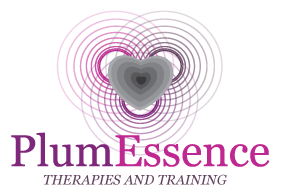This is the 22nd in a series of blogs, using answers I provided to pass Mental Health qualifications. This blog is the start of describing different types of depression, starting with post-natal depression.
As with many mental health subjects, they can all be massive topics with reams of books written on them. I will aim to break down post-natal depression down into 3 easy to read blogs, describing possible causes, how post-natal depression can affect individuals and the people around them, and how it can be treated and managed.
I strongly believe there is no one-size-fits all approach to managing any kind of mental health condition. It is the main reason why I am not a massive advocate of medication. I prefer to consider natural, healthy ways to recognise and manage any kind of mental ill health, tailoring each treatment and therapy to suit each individual. I do this from experience. It is what helped me which is why I believe it can help others too.
My own thoughts were written before I read the book Eyes Without Sparkle, by Elaine A. Hanzak which describes post-natal depression, from a very personal point of view, far better than I ever could.
The effect of post-natal depression on the mother and others:
The feelings an individual may have when experiencing post-natal depression:
During post-natal depression, the mother may feel and experience;
– not being in control
– feeling as though they are not being believed, experiencing stigma and hostility from others
– A disconnection from everyone and everything. A blankness and feeling numb
– feeling the pressure to be normal when they feel like they are being an appalling parent, feeling inadequate, sometimes not being able to do the simplest of tasks like eating or making decisions
– Feeling isolated, often surrounded by people but feeling alone while the attention is on the baby. This could result in hostility towards others, perhaps pushing them away and avoiding contact. This could result in isolation, feeling like a burden.
All of the above can result in anxiety and affecting sleep, resulting in the concerns relating to both of these.
The ways post-natal depression can affect the mother, bonding with the baby, and others:
The mother
Anxious – not knowing what to do for the best.
Resentment towards others as the mother feels neglected whilst people show attention to the baby.
Almost elements of paranoia, worried that people are looking for signs of neglect, and so could bring on things like OCD.
Fighting constant low moods which can be exhausting.
Self-neglect as the mother focuses all her energies and focus on the baby’s wellbeing, perhaps not making or having time for proper self-care.
Bonding with the baby
Mothers can feel a lack of love for the baby so can show it little emotion, nurturing and care.
Resentment against the baby could occur as the baby is shown love and attention by others, leaving the mother unloved and uncared for,
In the worse cases, baby may become neglected, and mother may have thoughts of harming it.
Lack of mother/child bonding may have long-term effects on the child too.
Others
The mother may feel resentful towards others if they lack understanding, so the mother could subconsciously be pushing them away.
This means the father, family and friends may also feel helpless and frustrated, perhaps feeling the mother is best ‘left alone’. Often, others do not know what to do for the best.
Preparations for birth may reduce risk of post-natal depression:
According to some mothers, there could be better education and information about non-standard births and what could go wrong, but not in a scare-mongering way. There could also be better information and encouragement of breast-feeding.
Attending ante-natal classes to encourage building relationships, friendships and a potential local support group with other expectant mums.
Self-education, researching as much as you can so that the ladies are aware of symptoms and resources available should PND commence.
Prepare for after the birth, to try and arrange help, both emotionally and physically and support for both, from family, friends and the partner, to try and reduce overwhelm, stress and pressure when the new baby is home.
If already suffered any form of mental illness previously, perhaps receive counselling or psychotherapy to start the healing process.
Also try and learn healing and coping techniques like meditation, mindfulness, and reiki so the techniques can be drawn upon when required after the birth of the baby.
The next blog will consider how to manage with, and the treatment of, post-natal depression.
Tracey of PlumEssence Therapies and Training is a qualified stress management consultant, mental health first aider, clinical hypnotherapist and body work therapist focusing on helping reduce and alleviate concerns connected to both physical and emotional wellbeing. Tracey is also a teacher and trainer, delivering workshops and accredited mental health courses.
Tracey is available for a no-obligation chat to see how we could work together on 01889 808388 or tracey@plumessencetherapies.co.uk
